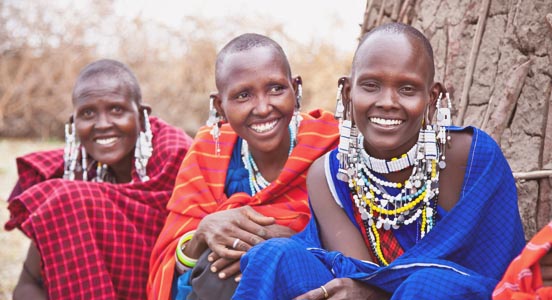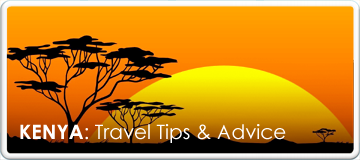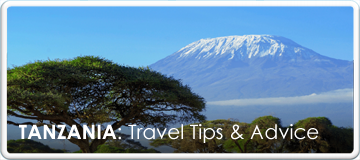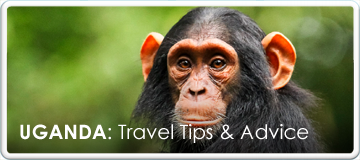Africa Travel Tips & Advice
Travelling to Africa for the first time has a tendency to freak people out. Many people think that it is a land full of war, disease, poverty and starving children.THIS IS NOT TRUE. The preconception is only embedded in misleading media articles. Africa is a beautiful continent, full of fast developing nations and incredibly rich in culture and diversity. If you’re about to visit Africa, I highly recommend you read this article before you go. It will help you notice things you never would otherwise! See Also: AFRICA SAFARI FAQs
Get The Facts Right Before Your Trip
At AfriChoice, we believe that the more informed our travellers are, the safer, better prepared and happier their vacation will be, so we have put together our top safety tips for travellers coming to Africa. From what to know before you go, when to go, where to go, what to pack, how to travel around, interacting with the locals, and how to stay safe, to avoiding problems, travel health and sense, finding exciting tours and attractions as well as getting affordable and safe accommodation. To start with, remember travelling in Africa is like travelling in any other part of the world - only more exciting! It is all about travel sense. Avoid ostentatious displays of wealth and keep use of your digital gadgets to a minimum in crowded public places. There are also a handful of less obvious considerations especially when going on an African safari, which means the possibility of malaria and the presence of large, dangerous creatures such as lions. There are specific cultural considerations and logistics to consider too - all these and more are outlined here.
Where To Go In Africa
As you are already aware, Africa is an enormous continent with many great countries to visit with each one offering a unique set of wildlife, nature, and culture. Based on data shared by Africa Renewal Online, out of the 50 million tourists that travel to Africa each year, travelers from France, UK, and the US, make up the biggest share. However, each has a different set of countries of preference. French travelers tend to opt for Morocco, Tunisia, Mauritius, and Senegal. The British mostly prefer Egypt, Kenya, South Africa, Mauritius, and Gambia. While Kenya, Tanzania, Botswana, Ethiopia, and Zimbabwe are the favorites amongst US visitors. If you’re a safari first-timer, it may be a good idea to start by checking out TOP DESTINATIONS in Africa. Alternatively, you can also easily determine destinations to consider by knowing exactly what attractions you are expecting to see during your trip.
When To Go To Africa
When it comes to safaris, the best time to travel depends very much on the destination(s) you have chosen. Generally, it’s best to go during the dry season as water is scarce and the animals would usually gather around the few water resources that haven’t dried up. Dirt roads are also easier to navigate this time of year (during the rainy season, some areas may be flooded, making it more difficult to get around). This is why you can expect to see a lot more animals you hope to see during your visit. Note that since the dry season is considered the peak season for safaris it’ll likely to come with a heftier price tag. If you’re expecting to observe wildlife migration, be sure to also take the time of the year into consideration. At the Serengeti National Park, for example, the great Wildebeest migration is also at its best for viewing during the dry season (late June to September).
Things To See and Do In Africa
Knowing what you expect to see on your safari adventure is a crucial part of planning your very own version of the perfect safari. Though Africa has a vast collection of wildlife, it’s worth to note that many of its species are unique only to certain regions. For example, the ‘Big Five’ safaris are popular among first-time safari goers. These safaris are tailored specifically for travelers whose main intention is to see the Big Five animals: lions, leopard, rhinoceros, elephants and the Cape buffalos. If you too are interested in seeing these five species during your visit, note that you will only be able to do so in: Botswana, Zambia, Namibia, South Africa, Kenya, Tanzania, Zimbabwe, The Democratic Republic of the Congo & Malawi. If you’re interested in doing some gorilla tracking, however, Uganda, Rwanda and the Democratic Republic of the Congo should be on your list of top destinations to consider.
Choose an Ideal African Safari
If you’ve already begun doing some research on types of safari vacations you ought to consider, it may dawn on you the abundance of options that are on offer. We understand that choosing from such a vast selection can be more than overwhelming. So, to help narrow down your choices, create a list of aspects of your five safaris ‘must haves’. This list should highlight the most important things to be factored into your travel, such as: Budget, What you want to see, Activities you’d like to do, Preferred type of accommodation & Mode of transportation. You may start creating the list by asking yourself the main reasons why you want to go on a safari. Is it because you’d like to see certain animal species? Would you like to catch a glimpse of the migration of animals? Or are you looking to be involved in a conservation safari project? By having a clear understanding your reasons for going on a safari as well as your priority aspects, you will be able to better focus your search and easily eliminate options that don’t fit your list needs and preferences.
Where To Stay in Africa
From tailor-made luxury safari tents where you can live like Prince Harry right through to your standard backpacker dorms where snore-proof earplugs are a must – your options for where to lay your head in Africa are many and varied. Thanks to the popularity of safari travel, when it comes to accommodation, there are plenty of choices to choose from. If you are looking to be pampered, luxury African safari tours offer accommodations such as five-star resort hotels or outdoor luxury camps. Alternatively, should you prefer a more wallet-friendly yet comfortable lodging options, treehouses, and campsites are great choices to consider. Many travellers actually choose to camp their way through Africa (we often did!), because the camping facilities are accessible, safe, full of good amenities, and super cheap. Plus, what better way to make new friends than by sitting round the campfire swapping stories about your day?!
Larger cities have all the usual accommodation options, the further into the countryside you venture, the less options are available. Don’t fear though, you’ll ALWAYS find somewhere to rest up after a hard day’s adventuring! Things to consider: Always book accommodation well in advance during peak season (May – October). Places like Namibia are extremely popular, with very limited accommodation in desert areas. Use guide books, online reviews or local recommendations. Does it get good reviews?! Does your accommodation have a safe, lockers or locks? Is there a night watchman/security to make sure you and your belongings are safe overnight?.
What to Pack for your Trip
First things first - as you will likely to be exposed to the sun A LOT throughout your trip, be sure to pack sunscreen (SPF 15 and above). Remember that you will need to re-apply often (every few hours) in order to minimize the chance of sunburn as Africa’s sun can be brutal. Be sure to also bring polarized sunglasses and a hat – preferably one that has a cord so it won’t get easily lost. When it comes to clothing, it’s highly advisable to pack comfortable, loose layered clothing that will protect you from the sun. Choose those that can be worn multiple times and are olive, green or khaki.
Bring a windbreaker and long pants as mornings and evenings can be chilly. For shoes, if you are taking a walking trip, be sure to bring heavy hiking boots. However, if you are going on a guided 4WD tour, sports sandals or sneakers would suffice. As your main intention is to observe the wildlife in their natural habitat, in addition to a sturdy binocular, be sure to also bring along a camera, digital memory cards, and extra batteries or a power back so you can make sure you’d be able to capture all the unforgettable moments you experienced as well as share them with your loved ones at home.
Travel Documentation, Immunizations and Insurance
Visas & Passports
In addition to a valid passport, for some countries such as Kenya and Tanzania, a visa is required for entry. We recommend for you to look up the list of visa requirements of the African country you are visiting on sites like VisaHQ.com. To ensure that you have ample time to get the visa processed, it is advisable to apply at least 2 full months (60 days) prior to your travel date.
Immunizations
Since some diseases such as yellow fever are commonly found in Africa, you will need to get immunized before you travel. Other than yellow fever, vaccinations that you would need include hepatitis A & B and typhoid. Since some vaccinations do take time (up to several weeks) to take into full effect, get your shots done way in advance prior to your departure. If you need more information on vaccines that are destination-specific, the website of the Centers for Disease Control is highly recommended.
Travel Insurance
As you may have gathered, going on a safari requires more preparation than most other types of travels. In order to book a package, some tour operators may require you to purchase travel insurance. We believe that it’s ‘better to be safe than sorry’ and highly recommend for you to purchase a policy – for your own protection, even if your tour operator doesn’t require you to do so.
Personal Safety and Health Matters
Take careful note of your safety briefing on arrival. Many safari lodges are unfenced and wildlife wanders onto the property. Though you’ll be surrounded by wild animals during your safari, safaris are generally safe. As long as you follow the safari etiquettes and the instructions of your guide (E.g: Don’t startle or provoke the animals), you will be in good hands. Always remember that the creatures you encounter are entirely wild and will react defensively if you appear to be a threat, or aggresively if you act like an easy meal - never approach a wild animal or attempt to touch one. Always listen to your guide: he knows how to keep you safe, but he can only do that if you listen to his instructions. The great beauty of an African safari is experiencing the wilderness as naturally as possible. Be mindful and realistic about encountering potentially dangerous animals, bugs and exposure to the elements.
To avoid getting ill during your trip, it’s crucial to stay hydrated (drink only bottled water) and to use insect repellant often. Be sure to also pack prescription and over the counter medications that you may need such as malaria medication, aspirin, ibuprofen, etc.as even common medications can be difficult to obtain in Africa. Be malaria savvy: use your room’s mosquito nets and ceiling fans and apply insect repellent to exposed skin in the early mornings and late afternoons (before your game drives) and again in the evenings before dinner.
Getting Around in Africa
Familiarise yourself with how you’ll get from A to B. Visitors to Kenya land at Nairobi’s Jomo Kenyatta International but transfer to Wilson Airport , which is an hour and a half drive away, to catch their flight into the country's legendary safari areas. Knowing where to go and how to do it reduces nasty surprises midway through your itinerary.
Organise airport transfers before you travel. Airports and other travel hubs are points where a traveller's ignorance makes them most vulnerable to being taken advantage of - rather begin your holiday being greeted with your name on a clipboard and a smile of welcome rather than a clamouring scrum of taxi drivers. An African Safari Expert pre-arranges all your logistics ahead of time.
Stick to South Africa and Namibia for self-drive holidays. Both are ideal destinations in terms of roads, signage, accommodation and attractions. The rest of Africa isn’t suited to self-drive touring - you need exceptional 4X4 driving skills, a sensibility for wandering livestock and a very thorough knowledge of where you are heading as signage and maps can be outdated or simply incorrect. If you prefer travelling by road, a private guide is an excellent option in Africa.
Money Matters, Tips and Gratuities
Africa isn’t a cheap holiday by any stretch – generally the daily costs for a traveller are much higher than in Asia or even South America. Budget around $100USD per day per person for transport, accommodation and food. Safaris and adventure activities bump up the cost substantially, so you’ll need to allocate more for those. There are 54 currencies in Africa, so things can get tricky if you’re travelling to multiple countries. Here are a few tips to handle it all: Most southern African countries have ATM’s or credit card facilities. If not, it’s best to find a local bank and stock up on currency. If you have a large amount of currency left over when leaving a country, exchange it at the border with a reputable source. Only in extreme circumstances should you use street vendors. Always hide at least $200 USD somewhere safe in case of emergencies. Credit card fraud is big time in some African countries - so take care of your credit card information and if lost notify issuing bank immediately. Tipping is generally expected, and appreciated, though it varies region to region. As a guide when on most safaris, a tip of USD 10 per person per day will be generally appreciated.
Local Food and Dietary Considerations
Prepare for some inspiring food. Some African cultures revered for their fabulous cuisine. Not the same for most of Africa. Many Africans rely on maize, or corn meal, to keep them full and satisfied. Maize is cheap, filling, and can be eaten with just about any meat or fish dish. It is the staple in many African countries, but to Westerners, the food may not be the tastiest. There are a few exceptions, but in general, we haven’t found the local food anything to write home about in the countries we have been. Ethiopian cuisine and some of the coastal dishes such as peri-peri on the coasts of East Africa deserve some recognition.
Be prepared to throw dietary restrictions out the window: Are you on a diet? Well, that diet may be hard to keep up with in Africa. While I do believe it’s possible to be a vegetarian when traveling Africa it will certainly make your dinner choices tougher. Like I said many dishes in Africa are based off maize meal sometimes accompanied by a heaping portion of meat. Unless you’re in a big city, salads, smoothies, and other light options are impossible to come by. Also – it’s worth noting that chicken is not considered a meat in parts of Africa, so be sure to specify if you are a vegetarian.
Prepare for Long Drives and Bumpy Roads
Whether you are self-driving, on an overland tour, or taking public transport the distances between points are huge! After a while of traveling the continent, you might get used to it. This is why we always wear comfy clothes for long days in the car. I know it’s gotten bad when I think a five-hour drive is short. I love to look out the window at the landscapes and people passing. If that’s not your thing be sure to download some podcasts, movies about Africa, good music, or books about Africa to keep you entertained. Driving at night in Africa is not a smart idea, there are people on the roads, hardly ever street lights and don’t forget about the wildlife. For us, if it means starting our journey at 5 am we will do it to avoid night driving. Just not worth the risks!
Prepare to Meet Beautiful People and Happy Children
Most of the African people are warm, friendly, and hospitable. Reemeber that they are just as interested in you as you are in them. If you can give you just one Africa travel tip it would be to accept the curiosity and be kind back. There are no unhappy child in Africa. Despite the many economic and social problems, most children are always smiling, laughing, and full of joy. They will be happy to teach you some local language!
Be a Responsible Traveller
Witnessing people living in poverty can often be overwhelming for travellers, but as tempting as it is to give gifts, money, or good to beggars or children, try to avoid it. Handouts can actually cause more damage to local communities than you'd realise by perpetuating the idea that Africa needs 'saving' by well-meaning rich foreign tourists. You might also be surprised to learn that begging is actually one of the most visible signs of human trafficking; encouraging kids to stay out of school and earn money instead, and organised crime gangs to drug or deliberately maim people in order to garner sympathy from tourists and more donations.
Be a responsible traveller, and avoid funding this cycle of abuse. And while we're talking about it, don't take photos of random children (for a start, it's weird - would you walk up to a kid in London and snap a photo of them without another thought?!), and avoid visiting orphanages and schools as it's both disruptive to education, leaves children vulnerable to predators, and is often hard to distinguish a good orphanage from a commercial one.
Finally - Give Back!
Signing up for a conservation safari is one of the best ways you can directly give back to Africa’s wildlife. If you’re looking for other ways to contribute that will last long after you’ve returned home, donating to worthwhile wildlife charities such as Rhinos Without Borders, a program that focuses on moving remaining rhinos at poaching hot spots to a military-protected sanctuary Botswana, can be just as rewarding. There are many Elephant conservation projects too. If you’re also keen to give back to Africa’s wonderful people, one of the simplest and kindest ways is to generously tip your safari staff as a way to thank them for their assistance and hospitality. Unemployment is still very much high across Africa and every amount will help towards building a more prosperous and thriving African community! Also See: Our Corporate Social Responsibility.
SEE ALSO: 25 Africa Travel Tips (and advice) of all times
Top 3 Tips To Remember!

Be Ready To Be Inspired by Africa!
Africa has her mysteries and even a wise man cannot understand them. But a wise man respects them!
Described in Karen Blixen own words, "There is something about safari life that makes you forget all your sorrows and feel as if you had drunk half a bottle of champagne - bubbling over with heartfelt gratitude for being alive!" Without doubt, nowhere in the world canadventure and leisure travel be so perfectly mixed and matched - Africa, full of adventure opportunities, bears the secret! Nothing but breathing the air of Africa, and actually walking through it, can communicate the indescribable sensations. I never knew of a morning in Africa when I woke up that I was not happy!

Be Ready To Meet Beautiful People!
Africa has it all - be prepared for beautiful people and happy children in a beautiful continent!
I’ve yet to see an unhappy child in Africa. I’m not saying that there aren’t unhappy kids in Africa, but the children I’ve come across in the villages, on the beaches, on the streets are always smiling, laughing, and full of joy. They mostly seem to get a kick out of any foreigner around! My favorite thing to do is make funny faces at them and they’re happy to reciprocate. Most of the African people are warm, friendly, and hospitable. We often found that they are just as interested as us as we are in them. Be prepared for beautiful people and happy children in a beautiful continent.

Be Ready To Take Home Sweet Memories
The only man I envy is the man who has not yet been to Africa – for he has so much to look forward to!
Africa, as we all know, is a continent with a huge variety of landscape, climate and culture! It is exciting, addictive and awe-inspiring. When you have had a taste of it, you will never want to leave. Visit Kenya, Tanzania and Zanzibar. The parks will include Amboseli National Park , Lake Naivasha, Masai Mara Game Reserve, Serengeti National Park, Ngorongoro Crater and Zanzibar Beach. Arrive open-minded and ready to experience new things! Things that create lasting memories. After two weeks in this African paradise you will leave with romantic safari memories that will last you a lifetime!
Proven EXCELLENCE through years of EXPERIENCE!
We are Africans. We Know Africa Better. We Love what we DO!
See Also: East Africa Travel Tips By Country

Kenya - The Home of African Safari
Kenya offers most stylish tourism infrastructure in East Africa. From the plains of the Masai Mara to the white sandy beaches of its coast, there is no place like Kenya for an African Safari holiday. Read More...>

Tanzania - Land of Mt. Kilimanjaro
Tanzania is a breathtaking destination for a first-time safari and for experienced safari enthusiasts alike. The wildlife sanctuaries of Ngorongoro and the Serengeti remains unexploited. Read More...>

Uganda - Meet Gorillas in the Mist
Many people travel to Uganda to see the Mountain Gorillas that it is famed for. Often referred to as the Pearl of Africa, it is home to half of world's remaining population of gorillas. Read More...>